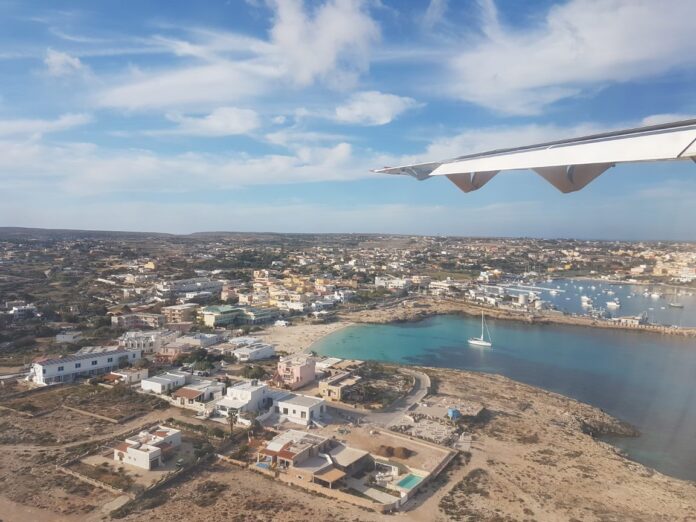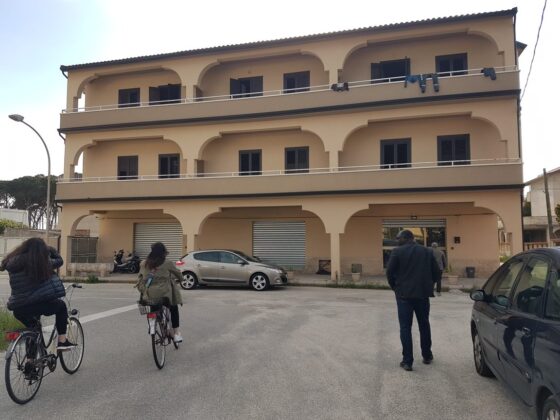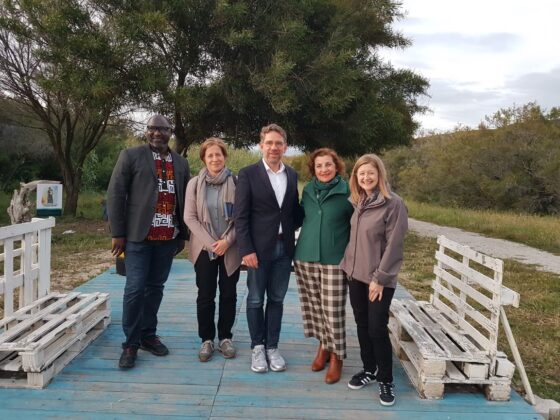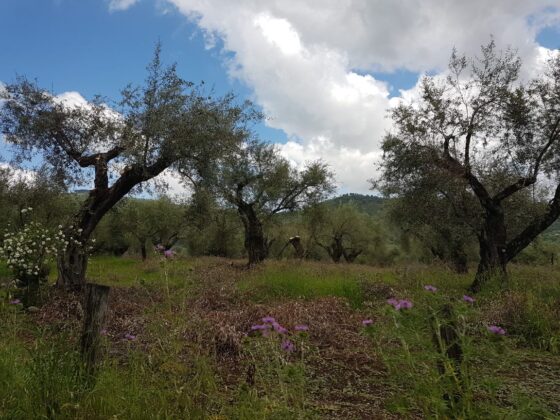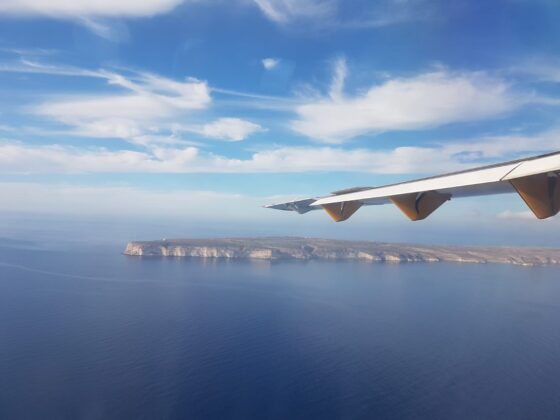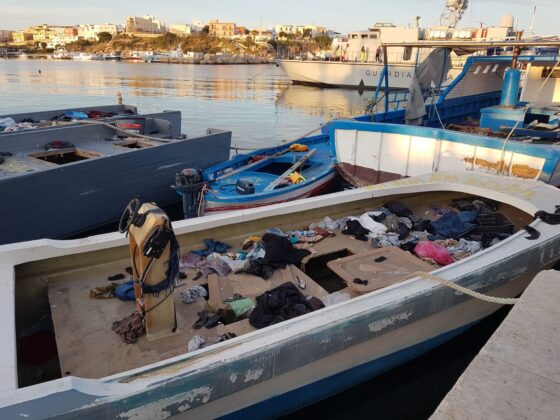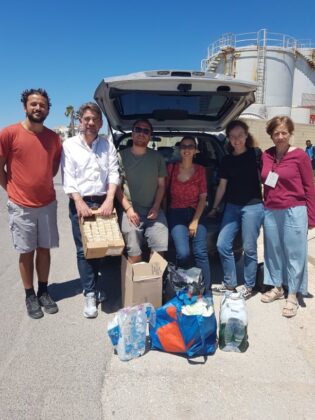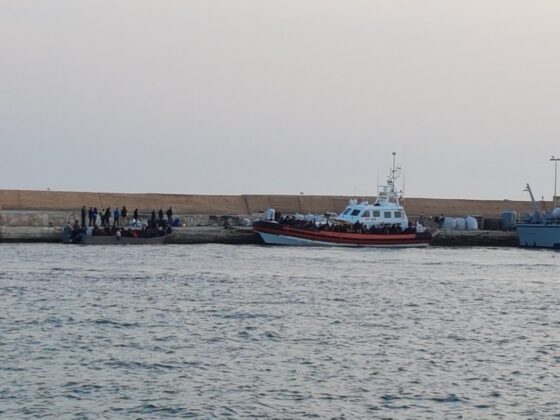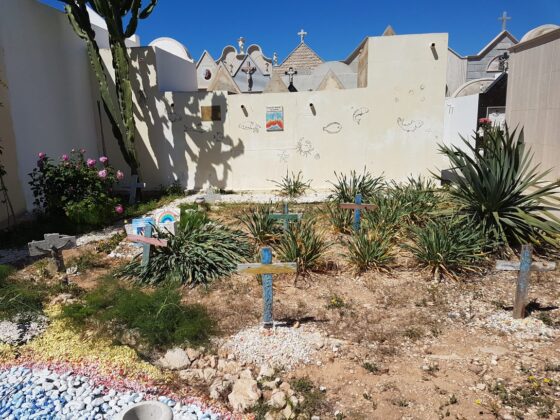Roma (NEV), 8th May 2023 – Landeskirchenrat Albrecht Philipps, Head of Department for Ecumenism, Mission and Global Responsibility of the Protestant Church of Westphalia, and Katja Breyer, Deputy Director of the Oikos Institute for Mission and Ecumenism, together with Marta Bernardini, Coordinator of Mediterranean Hope, visited working places of the organisation in Calabria and on the Mediterranean island of Lampedusa. Mediterranean Hope is the refugee programme of the Federation of Protestant Churches in Italy. The Waldensian Church, partner church of the EKvW, is also a member of this federation.
Talks in Rome, Rosarno and Lampedusa made it clear how crucial political work is for safe routes to Europe for those in need of protection. People who are on the run need protection and have rights. In the NesT programme, the Westphalian church and Mediterranean Hope work together to take in particularly vulnerable refugees in Westphalia. The programme shows that humanitarian corridors are possible and that politics can act accordingly. “We are working to ensure that people arrive in Europe with legal status and suitcases, rather than irregularly and barefoot in a boat,” Fiona Kendall, a Mediterranean Hope staff member, summed it up in Rome. How many people expose themselves to the life-threatening journey from Libya or Tunisia became directly tangible for the delegation on Lampedusa. During the visit alone, more than 1,000 people arrived in Lampedusa by boat. Together with the Mediterranean Hope team, Albrecht Philipps and Katja Breyer distributed water and cake at the ship’s dock, handed out baby food and nappies, a gesture of humanity. At that time, there were more than 1,400 refugees in the hotspot on Lampedusa, which was designed for a maximum of 400 people. The people sleep under the open sky, the hygienic conditions are inhumane. The camp is located in a remote valley of Lampedusa, is fenced in and guarded by Italian military and police. For the inhabitants and tourists of the island, the refugees and their situation remain largely invisible.
Mediterranean Hope opposes the invisibility of migrants and Europe’s turning a blind eye with the project “Lights on Rosarno”. About 2,000 migrants from sub-Saharan Africa work on the orange plantations around Rosarno in Calabria in winter. They are housed in ghettos outside the city, in slums made of plastic sheets; they are places of hopelessness. The Mediterranean Hope team in Rosarno is trying to change this and last year, with the support of the Westphalian orange campaign “Sweet not bitter”, opened the House of Dignity (Dambe So). About 40 workers find humane accommodation here. Albrecht Philipps and Katja Breyer were impressed how ecumenical solidarity succeeds in calling injustice by its name and working for humane living conditions. This joint work will be continued.






















